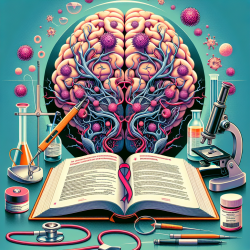Introduction
In the ever-evolving landscape of education, the integration of technology has become a pivotal component in enhancing both teaching and learning experiences. A recent study titled "Science for All”: A Case Study of Digitizing Inquiry-Driven Professional Development" provides valuable insights into how digitizing professional development can empower educators and improve student outcomes. This blog will explore the key findings of the study and offer practical suggestions for practitioners looking to enhance their skills through technology integration.
The Power of Digitization
The study highlights the successful digitization of a professional development curriculum by Integrated Science Education Outreach (InSciEd Out). This transition from traditional print materials to a digital platform, primarily using Google Classroom and Chromebooks, resulted in increased flexibility and engagement for educators. The digitized format allowed for real-time feedback and adjustments, aligning with best practices in K-12 classrooms.
Benefits of Technology Integration
One of the most significant outcomes of the study was the increase in teachers' self-efficacy regarding technology use. Teachers reported feeling more confident and capable of integrating technology into their classrooms after participating in the digitized professional development program. This is crucial, as research indicates that teacher-driven technology use enhances student learning outcomes.
- Increased Flexibility: Digital platforms allow for seamless updates and modifications to course content, ensuring that educators can adapt to the needs of their students in real-time.
- Enhanced Collaboration: Tools like Google Docs and Google Classroom facilitate collaborative learning environments, enabling teachers to model effective teamwork for their students.
- Immediate Feedback: Digital assessments provide instant feedback, allowing educators to make data-driven decisions to improve their teaching strategies.
Implementing Inquiry-Driven Learning
The study emphasizes the importance of inquiry-driven learning, which encourages students to engage in scientific experimentation and critical thinking. By incorporating technology into this approach, educators can create dynamic learning experiences that foster curiosity and innovation.
For practitioners looking to implement inquiry-driven learning in their classrooms, consider the following strategies:
- Utilize Digital Tools: Incorporate tools such as WiFi microscopes and digital data collection apps to enhance hands-on learning experiences.
- Encourage Student-Led Exploration: Allow students to take the lead in designing experiments and exploring scientific concepts, using technology to support their investigations.
- Foster a Growth Mindset: Emphasize the value of experimentation and learning from mistakes, creating a classroom culture that celebrates curiosity and resilience.
Conclusion
The digitization of professional development offers a powerful opportunity for educators to enhance their skills and improve student outcomes. By embracing technology and inquiry-driven learning, teachers can create engaging and effective educational experiences that prepare students for the challenges of the future.
For practitioners interested in exploring this topic further, I encourage you to read the original research paper: "Science for All”: A Case Study of Digitizing Inquiry-Driven Professional Development".










